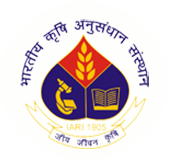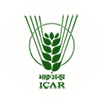Waste composting for urban and peri-urban agriculture: closing the rural-urban nutrient cycle in Sub-Saharan Africa [electronic resource] Edited by P. Drechsel, D. Kunze.
Material type: TextLanguage: English Series: CABI BooksPublisher: WallingfordUK CABI Publishing 2001Edition: 1Description: 229ppContent type:
TextLanguage: English Series: CABI BooksPublisher: WallingfordUK CABI Publishing 2001Edition: 1Description: 229ppContent type: - text
- computer
- online resource
- 9780851998893
Rapid urbanization has created a major challenge with regard to waste management and environmental protection. However, the problem can be ameliorated by turning organic waste into compost for use as an agricultural fertilizer in peri-urban areas. This is especially significant in less developed countries, where food security is also a key issue. This book addresses these subjects and is based on papers presented at a workshop held in Ghana by the International Board for Soil Research and Management (IBSRAM, now part of the International Water Management Institute) and FAO. Special reference is given to Sub-Saharan Africa, with acknowledgement to experiences from other parts of the world. Contributing authors are from several European, as well as African, countries.


There are no comments on this title.